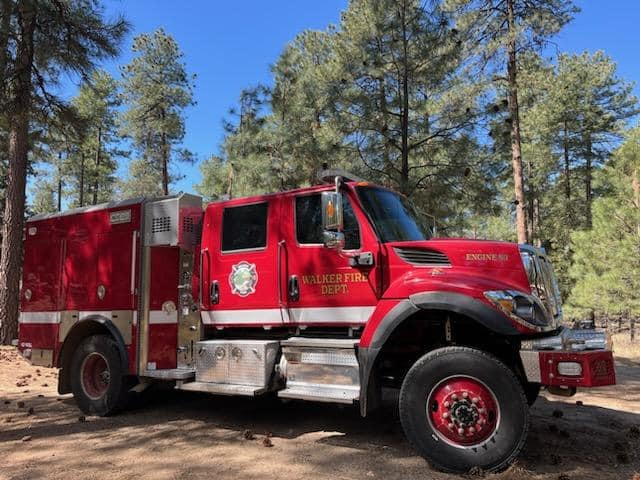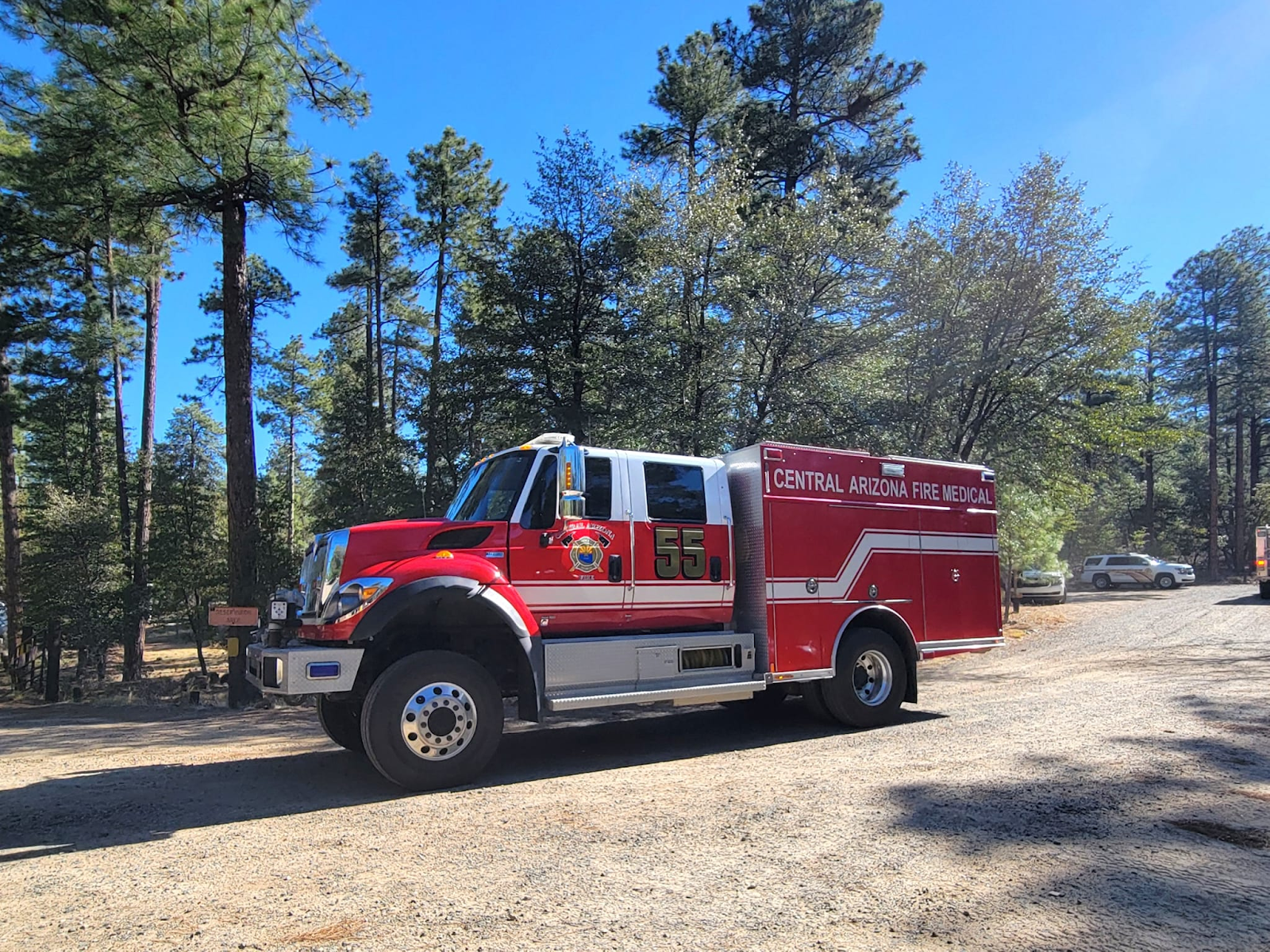Over the weekend we had the Basin Ops Drill which is the annual inter-agency wildland fire training exercise in the Prescott area. The drill is an unusual thing in the wildland fire world in terms of bringing together red trucks (city fire departments) and green trucks (Forest Service) In different years we've also had participation from AZ Dept of Forestry and the Bureau of Land Management. I've talked about this before that the inter-agency cooperation in the Prescott area was very unique but I believe other areas are now doing similar things. I've been part of the planning group for this event since 2010.
Prescott is an epicenter of wildland fire thought leadership and my willing to volunteer has allowed me to have a seat at the table of this epicenter. Literally. This is a point I've made many times before in arguing to very actively volunteer with some organization that interests you.
But the point of this post is leadership and the learning experience we had on day one of the drill. The way it is run is that all the departments participating go to a briefing for the day. After briefing they all go back to their trucks to wait to be dispatched out to a small prescribed fire lit by the Forest Service (training for them). Usually, engines from 3-4 departments will be dispatched to the prescribed fire, then when traffic is cleared for the first incident, the Forest Service will light off the second fire and the next 3-4 department vehicles will get dispatched to that one and then a third if there are that many participants.
The idea is to have personnel from different departments work together on these little fires. The training opportunities range from first exposure to live fire up to being the incident commander (IC) with a couple of other things in between.
This year we knew what trucks we were going to be dispatched with so after briefing we got together to preplan our response. The downside of this is it is not realistic to preplan a response but that's ok. We wanted to figure out who would be IC. The logical choice would be someone who has a "position task book" open for IC Type 5 or IC Type 4. No one in the group did. In our group we had one Battalion Chief from another department and me as Fire Chief of our department. I was asked if I wanted to be the IC, I said that I could but that I would feel like I was stealing a training opportunity from someone. Plus it would have been better for the guys I came with to work more closely with them. For one of our guys, this was his first fire, another guy was in his second season and the third guy has been with the department a few years but as more of weekender doesn't have a lot of fire hours.
One of the four engines in our group was from one of the big departments here and the captain of that truck voluntold one of his guys to be IC because he had expressed interest in taking the captain's test. As we all started walking together back to our respective trucks, it was clear from his comments that our IC had zero idea how to do this. I might guess that he'd never had the training.
When we got back to our trucks to wait for our dispatching, I warned our guys that the IC didn't know what he was doing. That doesn't have to be a bad thing though. In theory, the engine captain could/should know how to IC a very small wildfire and function as a mentor. That's legit. I came to conclude though, that the actual captain himself did not know what to do and put this other guy in the hot seat to avoid having to do it himself.
It unraveled right away. The IC's engine was listening to the first fire on the radio, we were told we'd be the second fire, and they missed our dispatch out to our fire. There's a radio process for this which includes pertinent information. In the picture of me, I am holding the incident action plan (IAP) that has all the communications info as well as other information. They missed it all and we sat in staging near the briefing area before someone told them we'd been dispatched which delayed us for 15 or 20 minutes. There was confusion on their part about where to go. I joked in our truck to just keep driving until you get to a fire.
The IC told us to stage (wait) and then a couple of minutes later told us to tie in with another truck. There was a long list of things the IC does on a "initial attack" that were not done. For any fire people reading this, no mentions of LCES, leader's intent and we never heard the sizeup. At one point very early on, I was asked for our location and I said "we're near your truck on what I presume is the Zulu side of the fire" and from that point forward we had an Alpha division and Zulu division. Establishing divisions is something the IC does for small fires (operations does this if the fire is big enough).
When you roll up onto a wildfire, you're supposed to position your vehicle in such a way as to make it easier to drive out if it becomes unsafe. In LCES above, the E is escape route. It was a very narrow road and as is often the case, our escape route was the way we came in. The road didn't lend itself to turning around to face out on the road but there were spots off the road to back in, making a quick exit easy, we wouldn't have to put the truck in reverse to leave. We were the only one of the four to position correctly. I am not sure if the IC is actually responsible for that, although his truck was pointed the wrong way too, but I would have mentioned it to each truck.
The fire was an acre at the most and we got a line around it very quickly, spraying water on it as we went. It was very short and we got it done easily. We worked great with the other department also assigned to Division Zulu and had a lot of fun. We succeeded despite not having a competent IC. After the fire was out and we were waiting for our after action review (sort of a debrief), our little group talked about how bad the IC was and what a great learning opportunity it was to see someone flounder like that. I think our guys will benefit from the IC's mistakes.
If you're wondering why I didn't say or do anything about this. There was a guy on the other truck assigned to Zulu with more experience than me and he didn't do or say anything either. The reason has to do with maintaining chain of command. If you understand what your assignment is and with a small fire on flat ground the assignment is pretty much always going to be to anchor and flank (jargon for what we did starting to dig fire line), spray it with water, improve the line and then mop up, and you feel safe, then just do your job. Additionally there were Forest Service personnel all over acting as facilitators and available to jump in if things got too spicy.
It was very productive for us, despite how this might read it was a lot of fun and I got to take pictures of fire trucks which is sort of a hobby of mine.






No comments:
Post a Comment